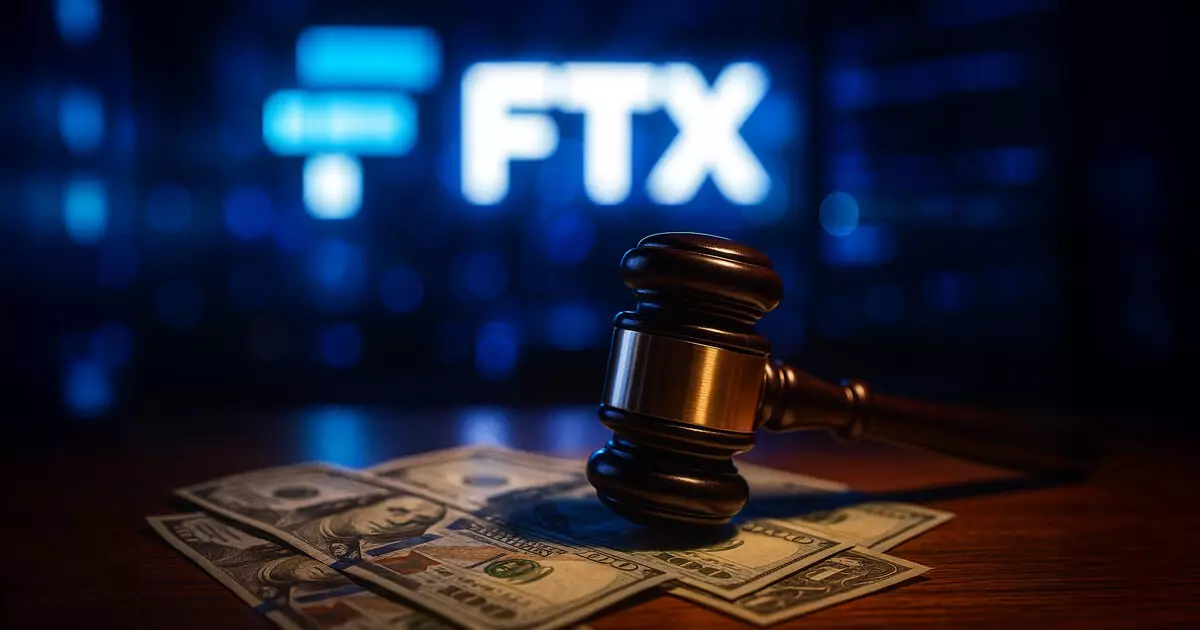In the bewildering world of cryptocurrency, few stories are as compelling as the ongoing legal saga between FTX and Three Arrows Capital (3AC). FTX, once a shining beacon of hope in the chaotic crypto universe, is now embroiled in a dark web of legal disputes, as it faces claims from 3AC amounting to a staggering $1.53 billion. What is striking about this claim is not merely the amount but the audacity with which 3AC believes it can shift the blame for its own spectacular failure onto another entity. FTX’s aggressive legal stance reveals a deeper truth: accountability has become a lost virtue within the crypto domain, where hubris often masquerades as innovation.
Risk Mismanagement and Ignored Margin Calls
The legal papers submitted by FTX lawyers thoroughly dismantle the claims by 3AC. They assert that the hedge fund’s financial wreckage is not the product of external forces but a direct result of reckless self-sabotage. The trading firm’s penchant for risky margin trades led them into a debacle during the summer of 2022, when the collapse of the TerraUSD stablecoin sent shockwaves through the entire market. Shouldn’t the very nature of margin trading—which inherently includes risk and unpredictability—remind traders like 3AC of the inherent dangers? Ignoring margin calls, a critical signal in such trading, is akin to ignoring fire alarms in a burning building.
The insistence of FTX on the contractually permissible liquidation of 3AC’s assets raises questions about the ethics of risk management practices in volatile markets. The timing of margin calls is not designed to evict traders arbitrarily; it exists to prevent catastrophic losses not only for individuals but also for the larger ecosystem. By withdrawing funds in the face of an urgent credit breach, 3AC further exacerbated its perilous situation and appears to be employing a strategy of deflection—screaming injustice when it is simply facing the consequences of its own decisions.
A Legal Perspective: Who’s in the Right?
FTX’s legal argument rests on both contractual obligations and the assertion that 3AC’s claim is rooted in an “unreasonable and unsupportable” premise. This is where the legal heads start to clash. 3AC claims to be a victim, but this narrative requires twist upon twisted, convoluted logic. In the legal opinion of experts brought forth by FTX, 3AC’s basis for its claims is weak at best and outright reckless at worst. One could argue that the hedge fund’s attempt to lay blame on FTX only serves to distract from the fundamental flaws in its trading philosophies and models.
3AC should not be viewed through the lens of victimhood but as a cautionary tale of what happens when greed goes unchecked. The submission of testimony from esteemed professionals solidifying FTX’s position only heightens the suspicion that 3AC’s narrative is nothing more than a calculated attempt at retribution for its own financial mismanagement.
The Stakes for FTX’s Legitimate Creditors
As this multi-billion-dollar dispute unfolds in Delaware courts, the implications extend far beyond the two entities embroiled in this legal battle. The impact on FTX’s legitimate creditors—individuals and businesses awaiting reimbursement after the company’s collapse—is as severe as it is tragic. 3AC’s maneuvering to lay claim to funds that rightfully belong to these creditors is not only unethical; it’s a blatant power play that could drain resources intended for those who are genuinely owed.
FTX lawyers assert that every dollar taken to satisfy 3AC’s claim diminishes the recoverable pool available to legitimate creditors, who have been deeply affected by the collapse of the platform. This unfettered greed compromises the integrity of ongoing bankruptcy proceedings designed to offer relief to those truly impacted, raising alarms about an industry already facing a deep trust deficit.
In an era where accountability is increasingly circumnavigated in the financial realm, let us hope that this case serves as more than just entertainment. It must act as a wake-up call for all market participants, reminding them that the pursuit of profit without accountability leads to devastation—not just for one’s own assets but for an entire network built on trust and collaboration.



















Leave a Reply